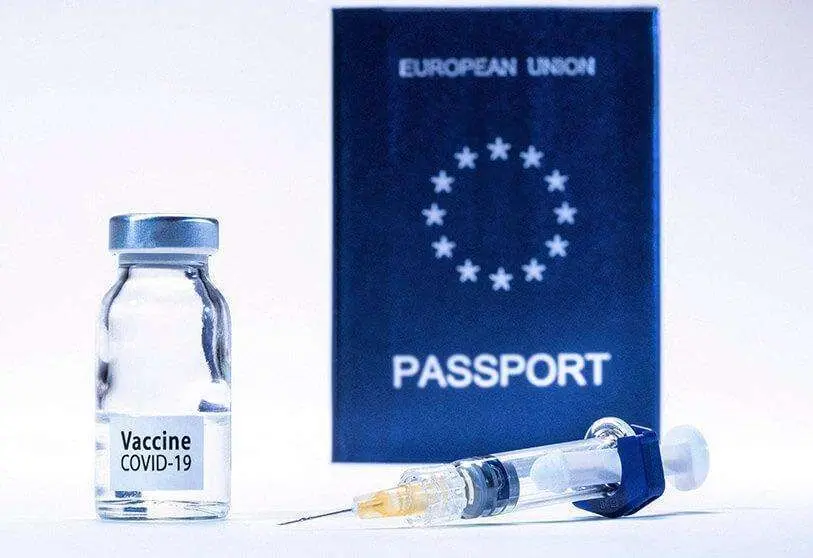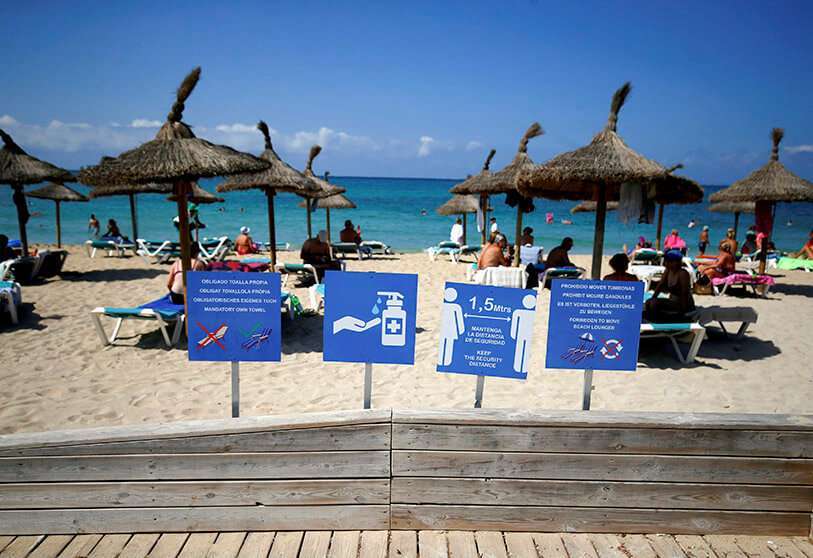The European Union launches "COVID passport" to promote tourism

White smoke: After four long sessions of tense and tough discussions, MEPs and Member States reached agreement on Thursday on a European health certificate aimed at facilitating travel in the EU this summer despite the pandemic, paving the way for its implementation by 1 July. Representatives of the European Parliament and the EU-27 reached a compromise after a fourth round of negotiations.
A pact in which member states agree to avoid imposing measures such as quarantines, while reserving the right to do so proportionately if necessary depending on the epidemiological situation in each country. The European Parliament had initially called for certificate holders not to be subjected to restrictive measures such as quarantine upon arrival in a country. But the EU-27 emphasised that this is a national competence, keeping this option open, for example, in case of an outbreak of a variant.

MEPs called for the certificate to become a quasi-passport, a document sufficient for EU citizens to cross internal European borders without additional restrictions, such as quarantine or PCR tests. The agreement reached means that the EU-27 will try to avoid such measures for citizens who have the new certificate, but does not rule out imposing them if the epidemiological situation so requires and provided they are "necessary and proportionate", taking into account the data on the progress of the pandemic.
The certificate will also be free of charge, and member states can also use it for national purposes, if provided for in national legislation. The agreed document will include: whether the carrier is vaccinated; whether he/she has passed the coronavirus and the PCR results. It will also contain whether the traveller has received any other vaccine approved by a Member State, but not by the European Medicines Agency (EMA) as in the case of Hungary, which administers the Russian vaccine Sputnik V and the Chinese Sinopharm, but it will be up to each Member State to decide whether it considers them valid or not.
The EU COVID certificate, which will run for twelve months, will be binding in the EU for vaccines approved by the EMA, which has so far validated drugs from Pfizer-BioNTech, Moderna, AstraZeneca and Jannsen. Alongside the agreement on the certificate, the European Commission has committed to mobilise €100 million from the EU's Emergency Support Instrument, the same instrument that has funded the €3.5 billion vaccine contracts, to fund PCR tests, especially for groups such as cross-border workers and students, those travelling for medical care or those caring for loved ones.

The last-minute compromise came after days of clashes over the price of PCRs and the scope of the vaccination certificate. The proposal came from the Commission with a view to finding a consensus between the position of the European Parliament, which wanted to ensure that these tests would be free or limited in price, and that of the Council, which rejected lowering the cost.
This, the Parliament argued, would discriminate between people who have already been vaccinated - and would not have to bear any extra cost to travel - and those who have not yet had access to immunisation and, in order to obtain a certificate, have to prove that they have antibodies after passing the coronavirus or pay for a PCR test.
The name of the document will be the one proposed by the European Parliament, the EU COVID digital certificate, instead of the Digital Green Certificate proposed by the European Commission. And it can be applied for by anyone who has been vaccinated, has a negative COVID-19 test or has recently been ill and developed antibodies. The aim is to avoid quarantines among the 27 and to speed up summer tourism.
The agreement was reached in negotiations that ended on Thursday and now only needs to be formally ratified by governments and the European Parliament, first in the Civil Liberties Committee on 26 May and then in plenary during the June plenary session (7-10 June 2021).








